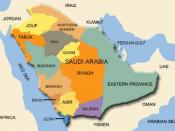As the marketing manager of company XYZ, I would choose several research methods for creating marketing campaign. The methods include sampling, focus groups, observation, questionnaires and the analysis of documents such as historical documents, archives, databases and products of the media. Even though I chose several methods the main approaches would be the analysis of documents and observation.
It is unlikely to collect data from everyone who is connected with the main purpose of the company marketing campaign; time and other resources will prevent this. Therefore, we would have to collect evidence from a portion (or a "sample") of the population in which we are interested. It is expected that our sample will generate adequate and relevant information, with sufficient quality data to offer new insights on the topic of the marketing campaign (McDaniel and Gates, 1995, p. 88). To some extent, computer-mediated communications and telephones help to overcome some of the difficulties of sampling across a wide or distant geographical spread because interviews can be conducted online or by phone on a global or regional basis.
Similarly, busy people are often willing to be interviewed online but not face-to-face. In this way, the Internet is a useful tool in extending the scope of the sampling unit.
Focus groups stand on their own as a research approach, but also may be used in combination with other methods. Focus group research will help to gain substantial insights on a variety of issues and strategies, from the macro (such as the influence of national cultures on strategies or strategic decision making) to the very detailed (such as consumer responses to advertisements). The focus group approach does not rely merely on the ideas of the researcher and a single participant; instead, questions and answers are produced by members of the group themselves (Morgan,


